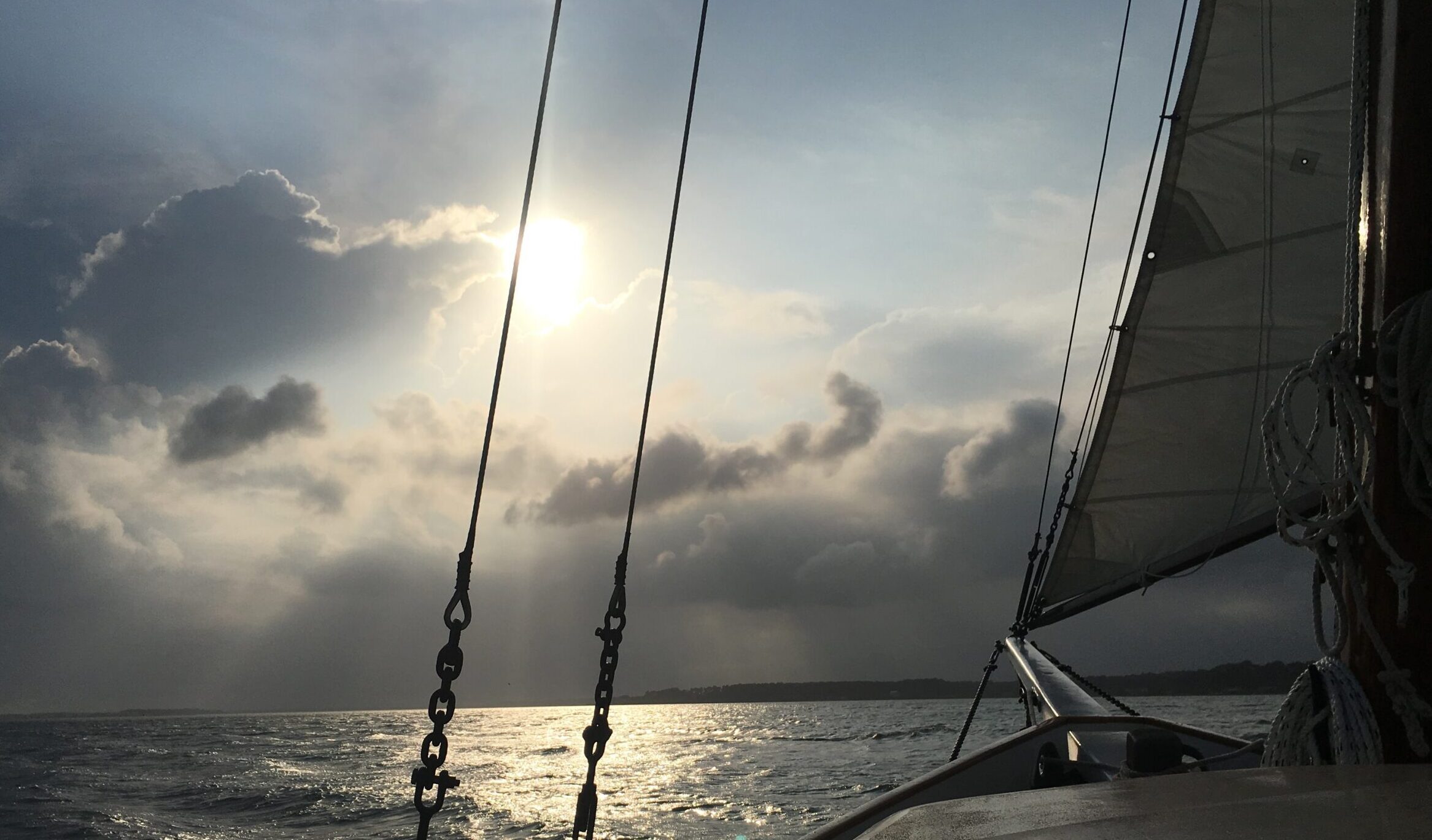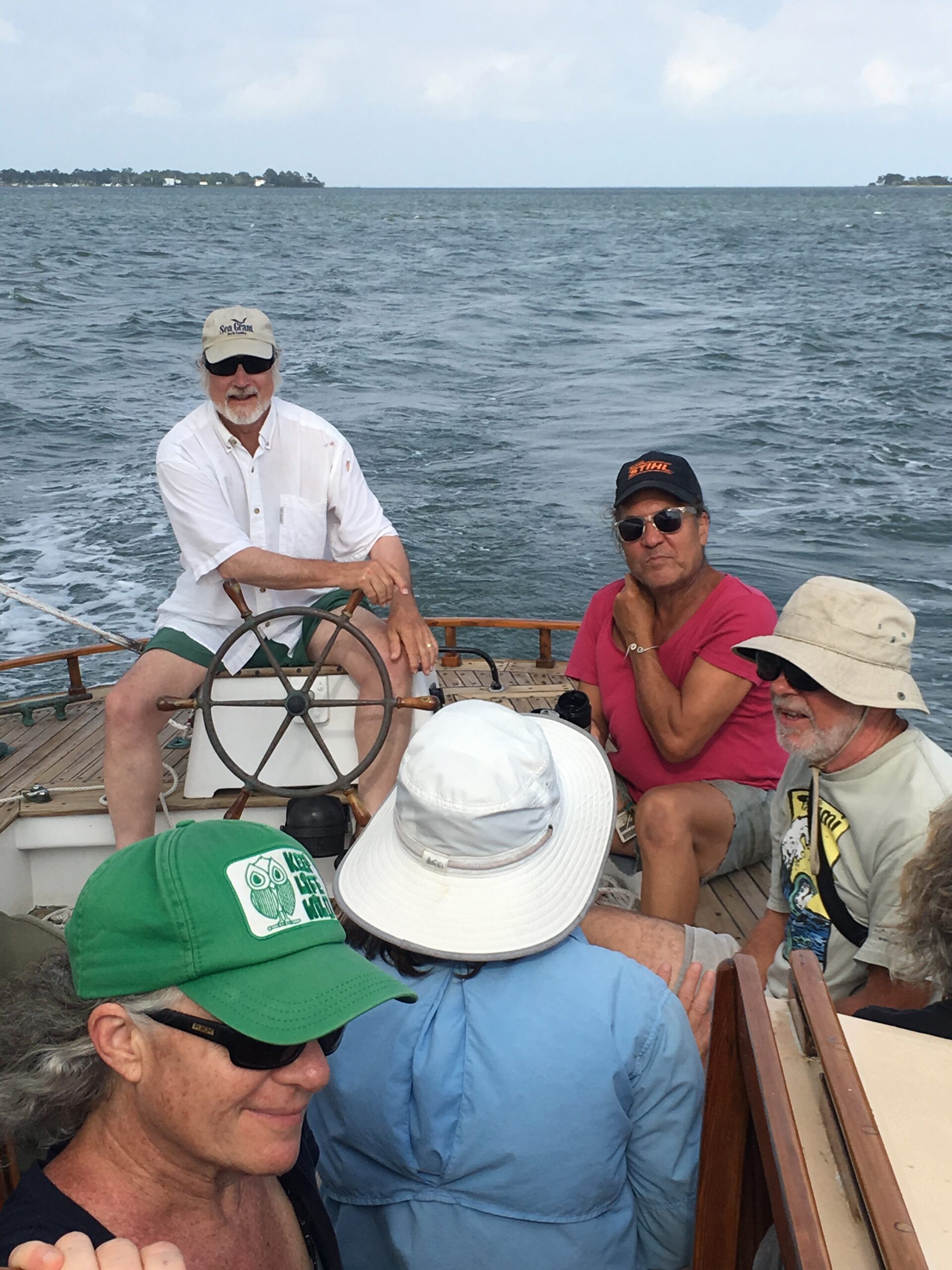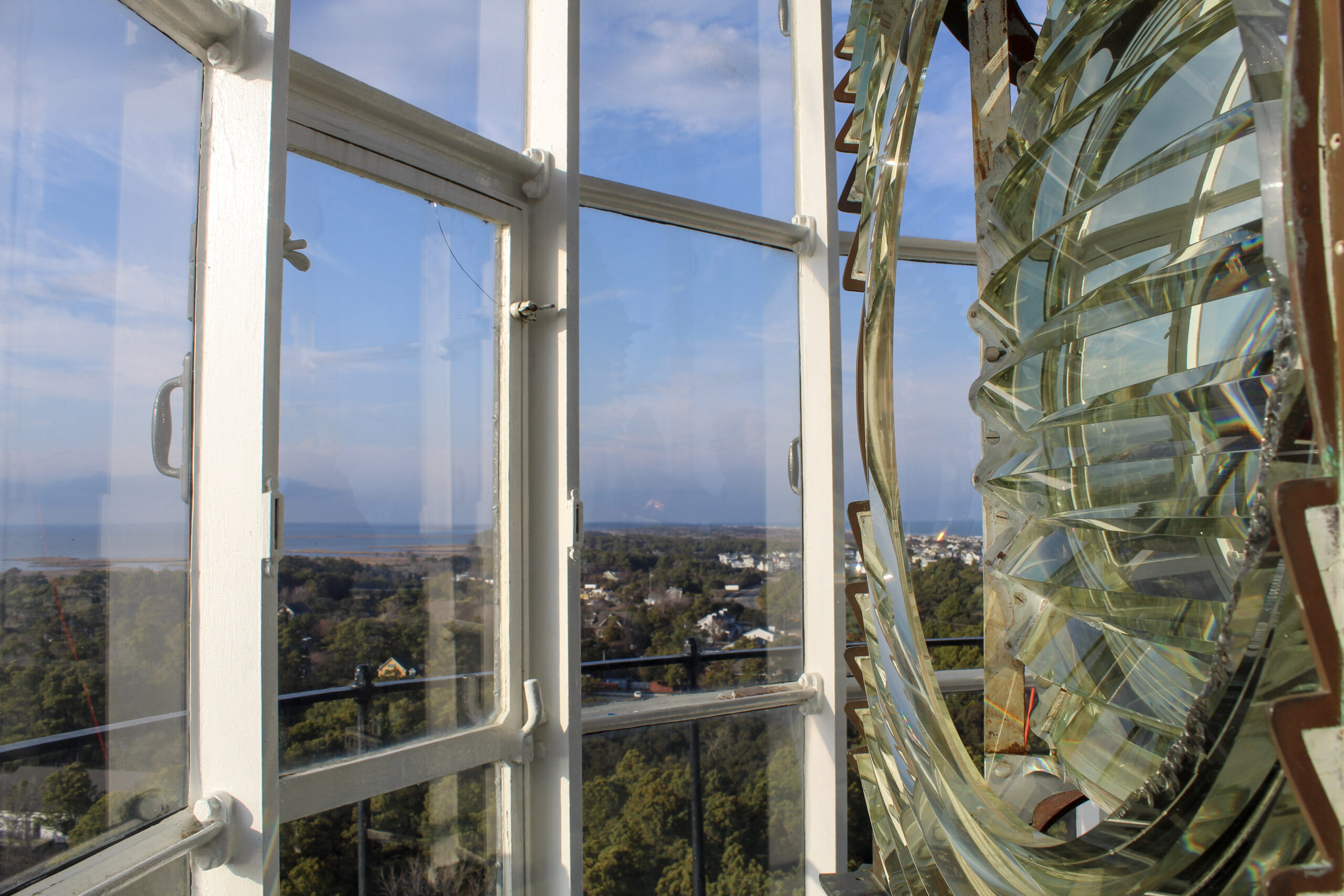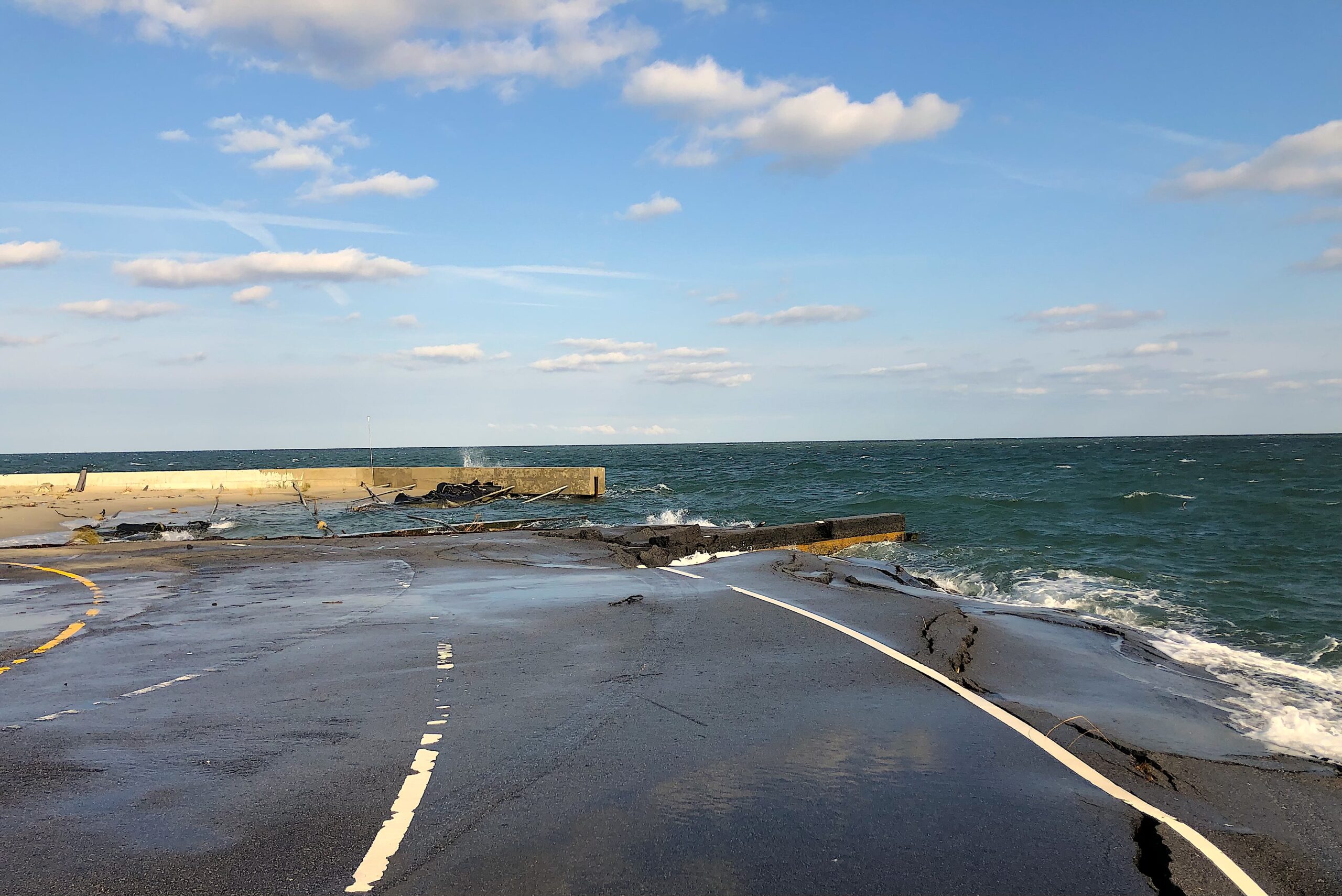The Straits by Skipjack
"If Hell ever comes, it'll come from the southwest."

From the short dock along Lida Pigott’s cut in Gloucester off the north side of The Straits, on as blustery a Sunday summer afternoon as one might want, the 28-foot skipjack Natty Lou headed out, her mainsail reefed.
A hundred yards or so out, skipper Bryan Blake, who had brought the craft back to a life on the many waters after 30 years or so fixing her up on the hard, ordered the hoisting of the sail, and then we were really off, running west under his hand toward the Harkers Island bridge, a twenty-knotplus southwest wind pushing us smartly along. One of the eight aboard, including Bryan’s wife, author Barbara Garrity-Blake, remarked that the Sound Country lay under a small craft advisory for much of the next week.

Suddenly, the captain put me at the helm, telling me to keep heading her for the bridge, with the only other instruction for keeping her on course being to overcompensate and then to overcompensate the other way in order to catch and curtail each reaction before it was fully realized. Natty Lou, a beamy craft, pushed graciously along and only now and again asked for the oversteering Cap’n Blake had called for. When she caught a gust hard and heeled right over to starboard, though, I eased up on her to let her come back up. No one wants a knock-down, and the wind blew quite abidingly stiff and steady.
“If Hell ever comes,” someone ventured with good cheer, “it’ll come from the southwest.”
Not far before the bridge, Cap’n Blake ordered us to come about, and now we were eastbound, Molly Bell’s Point and all of Brown’s Island off to starboard now, the east mouth of The Straits dead ahead. The captain calmly served sardines (with gourmet tomato sauce and mustard sauce) and saltines, set upon the engine cover.
And then Lida launched into a tale about the young Mel West of Morehead City, who back in 1957 thought he could pilot a 15-foot motorboat from Beaufort Inlet all the way out to Bermuda — he was 28 years old — and took off to prove it, incredibly getting fairly close to the fabled isle that lay 500 miles off Carolina before he lost his last fuel in a heavy sea. He was dead in the water, whereupon he soon got picked up by the Coast Guard, taken to St. George’s in Bermuda, and then sent home to Carteret County.
The next time Mel West tried, Lida said, he simply disappeared.

Natty Lou stood for the mouth of The Straits, made it, and entered the bottom of Core Sound. We could see a squall line some miles behind us being blown north, toward us, after which we would come around and head back in, smoothly as you please. Hard crabs, clams, and sweet corn awaited us, along with that fast-moving, fabulously roaring downpour from the south, and also Barbara’s beloved lemon-meringue pie.
While still out in Core Sound, though, David Burney, Lida’s husband, an old salt if there still were any, had taken off talking about St. Elmo’s Fire, the lit-up ionization on the tips of masts and yard-arms on ships at sea when the air is electrified. A captain he was out with once, when conditions were highly ripe for St. Elmo’s, kept telling his crew not to worry, saying, “It won’t hit us, boys, and, even if it does, it won’t hurt us much.”
What this captain really feared, Burney said, was a waterspout at night.“’Cause you can’t see it. One minute you’re there, next minute, you’re gone!”
More from Bland Simpson
- “Crossing the Mighty Neuse“
- “Out at Hatteras“
- “This Wet and Water Loving Land”
- Ghost Ship of Diamond Shoals: The Mystery of the Carroll A. Deering
- Two Captains from Carolina: Moses Grandy, John Newland Maffitt, and the Coming of the Civil War
- on writing Two Captains
- more books from Bland Simpson
Bland Simpson, North Carolina’s oft-honored voice of our state’s coast, is Kenan Distinguished Professor of English and Creative Writing at the University of North Carolina at Chapel Hill. He is also pianist for the Red Clay Ramblers, the Tony Award-winning string band, and has collaborated on such musicals as Diamond Studs, Fool Moon, Kudzu, and King Mackerel & The Blues Are Running.
- Categories:


